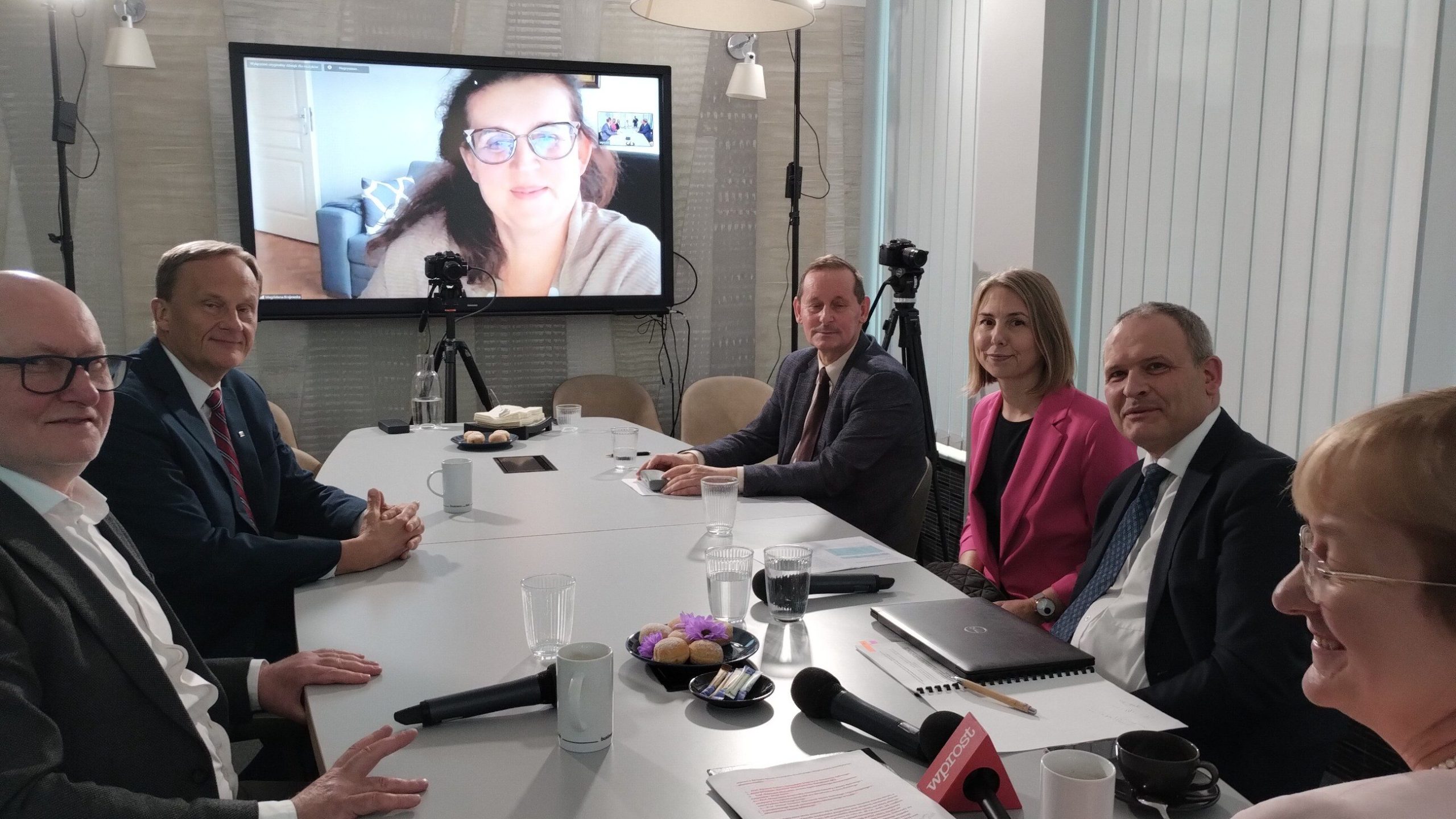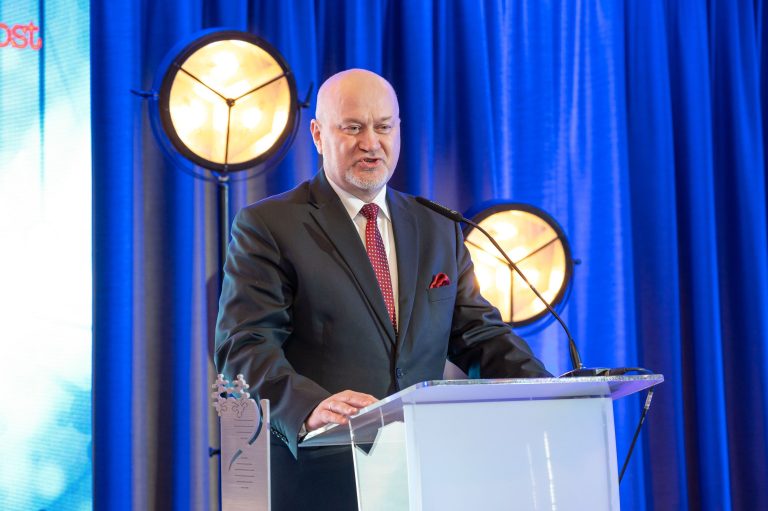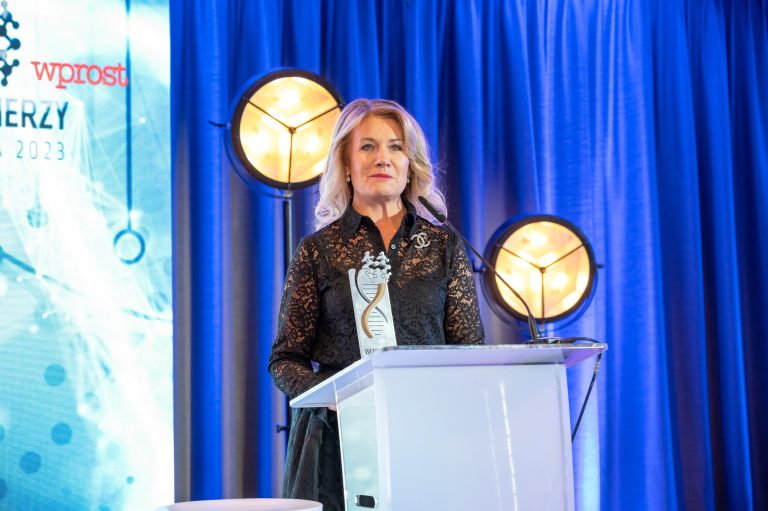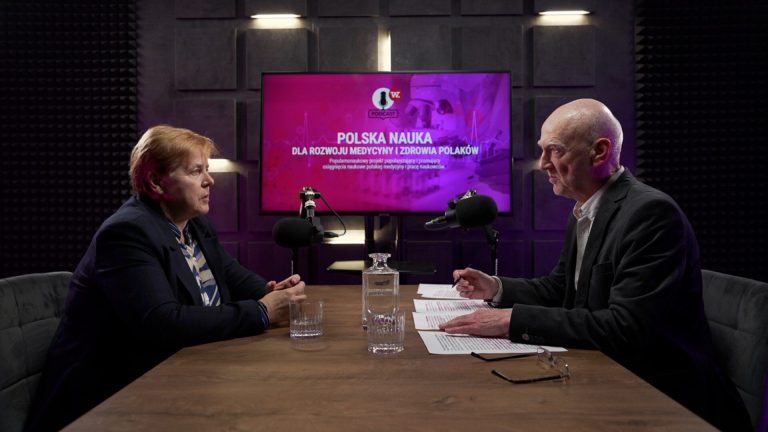Experts at the Wprost debate: early diagnosis and quick initiation of treatment are important in kidney diseases

Coordinated care and the possibility of early diagnosis of kidney diseases in primary care physicians’ offices, new drugs in drug programs for rare diseases: these are the biggest changes that have taken place in the treatment of kidney diseases in recent months – emphasized experts and patients during the debate “Wprost to kidney health”. They also said what their priorities were for the near future.
Time is very important in kidney diseases: too late diagnosis and initiation of treatment may result in kidney failure and the need for dialysis or kidney transplantation. That is why the vigilance of doctors, the ability to perform tests and quick access to treatment are so important. This applies to both common, rare and ultra-rare diseases.
Early initiation of aHUS treatment
Atypical hemolytic uremic syndrome (aHUS) is a rare, genetically determined disease. – It may not cause symptoms for many years, and under the influence of certain factors, e.g. infection or surgery, the body’s defense mechanism is suddenly activated, causing the blood to clot. Most often this happens in small vessels. Blood cannot flow because the small vessels are closed. That is why it is such a terrible, stormy disease during exacerbations, causing symptoms in many organs. It can also quickly destroy the kidneys – said prof. Ryszard Gellert, national consultant in the field of nephrology.
The aHUS drug program currently includes two drugs (since September, a new drug has appeared in the program, which can be administered every 2 months). This changed the situation for patients significantly, as previously they had to come to the hospital to be administered the drug every two weeks. Both patients and experts are very happy with the new therapy in the drug program. During the debate, however, they pointed out that it would be worth introducing an important change regarding the criteria for qualifying adult patients for the program. In July, the Polish Society of Nephrology asked Deputy Minister Maciej Miłkowski on this matter. Currently, the necessary condition for including an adult patient in a drug program is the result of the ADAMTS13 test (it differentiates aHUS from other microangiopathy). The problem is that in some centers you have to wait up to several days for the results, and during this time the disease may irreversibly destroy the kidneys and the patient is “doomed” to dialysis or kidney transplantation for the rest of his life. The Polish Society of Nephrology appealed that in order to start treatment faster, the doctor could use the so-called PLASMIC score. If it indicated a very high risk of aHUS, the patient would be treated with a drug from the drug program. Continuation of participation in the drug program would require confirmation by the ADAMTS13 study.
– Time is of the essence here. We appeal to be able to include patients in treatment using this indicator – emphasized Prof. Magdalena Krajewska, president of the Polish Society of Nephrology.
– Time is life: that is why we fully support this appeal. In the case of children, it is possible to start treatment before the doctor receives the ADAMTS13 test result, it would be good if it was also possible in adults – noted Prof. Rajmund Michalski, president of the National My Kidneys Association.

Prof. Michał Nowicki, head of the Department of Nephrology, Hypertension and Renal Transplantology at the Medical University of Lodz, pointed out that aHUS is a disease with a very high mortality rate.

– If treatment is started within 7 days of the onset of symptoms, the chance of returning kidney function is 80 percent; thereafter, only 1/5 of patients will be able to partially recover kidney function. Therefore, you have to do everything to start treatment within 7 days, and this is very difficult, because the patient is not always immediately transferred to a highly specialized center, and the doctor will not always immediately suspect that this is the disease. We rarely manage to keep these 7 days until the start of treatment. Patients lose their chance and then have to undergo dialysis for the rest of their lives. We have a chance to improve this process, emphasized Prof. Nowicki.
Experts pointed out that there were few patients (the disease is diagnosed in approximately 40 people a year), and such a change in the drug program would not result in more patients.
– The PLASMIC score indicator allows for 93% correctly recognize aHUS. Quick inclusion in treatment is very important: we had a patient who we managed to qualify for the program within 4 days; he completely recovered his kidney function. After 6 months, we discontinued the drug – noted Prof. Nowicki.
There was already an “oncology package”, now we have a “nephrology package”: stopping the progression of chronic kidney disease
– Chronic kidney disease is like cancer: it must be looked for like a cancer, because it does not show symptoms for a long time, but it kills just like a cancer. Meanwhile, every third person over 60 years of age has chronic kidney disease, and 95 percent patients do not know about their disease – emphasized prof. Richard Gellert. Kidney diseases are a very serious epidemiological problem: in Poland, approximately 4.7 million people suffer from chronic kidney disease. Diseased kidneys shorten life by up to 20-30 years and often coexist with heart failure and diabetes. A breakthrough is the introduction of coordinated care for patients with kidney diseases in primary care units from November. Primary care physicians can now refer patients for tests to check whether chronic kidney disease is developing (blood creatinine and urine albuminuria).
– We are glad that the Ministry of Health listened to the voice of the nephrological community and modified the problem of diagnosing and treating chronic kidney disease in primary care. This is a disease that is much more common than diabetes, said Prof. Richard Gellert.
He emphasized that coordinated care in primary care is a breakthrough. – There was an “oncology package”, now we have a “nephrology package”. Primary care physicians received tools to diagnose kidney disease early and received clear instructions on how to treat it. The patient’s “path” is clearly described: what should be done at what stage, when he can be treated in primary care, and when referral to a nephrologist is necessary. If we start diagnosing and treating patients with chronic kidney disease early, we will be able to stop it – said Prof. Gellert.

The role of educating both society and patients was also emphasized by prof. Rajmund Michalski – The National Moje Nerki Association tries to educate patients, both in terms of prevention and treatment. It also supports patients undergoing dialysis. – The most important thing is to diagnose kidney disease at the earliest possible stage to avoid the need for dialysis or kidney transplantation – emphasized Rajmund Michalski.
Experts also reminded that flozins are a breakthrough in the treatment of kidney failure – just like diabetes and heart failure.
– The reimbursement procedure is designed in such a way that flozins had to disappear from the reimbursement lists for some time, but I am convinced that they will return quickly. There is no turning back from this. These are drugs that have been proven to prolong life and prevent death. They restore faith in science and in the progress of medicine – said prof. Gellert.
Deputy Minister Maciej Miłkowski, who was present at the debate, noted that currently approx. patients use flozins. – Of this, 36 thousand are patients with chronic renal failure, 27 thousand. – with diabetes and chronic renal failure; 17 thousand – with heart failure and chronic renal failure and 11 thousand with chronic renal failure, diabetes and heart failure.
We are currently in negotiations to return these drugs to the reimbursement list. In the case of chronic renal failure, there were also demands from the community to change the reimbursement criteria to qualify patients for treatment earlier. We hope that we will be able to do this, said Deputy Minister Miłkowski.

He also noted that new therapies for patients with kidney diseases can be expected on the next reimbursement list. He emphasized the role of primary care physicians in the early diagnosis of kidney diseases and comprehensive patient care, and also pointed out that discussions should be held with diagnosticians on how to accelerate the early diagnosis of rare diseases, including aHUS.








